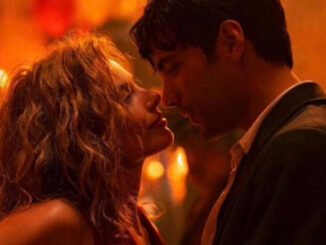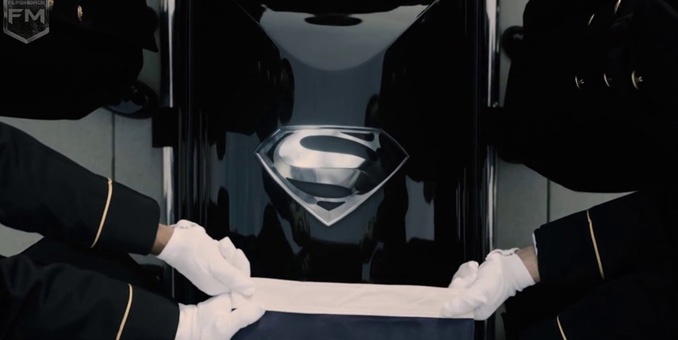
Friends, FilmBuffs, Comic book movie fans, lend me your ears! I come to bury the DC Extended Universe, not praise it!
Okay, that’s not entirely true. I’m going to throw a little praise the DCEU’s way. Probably more than you’d expect. Because, after all, the DCEU wasn’t all bad. It wasn’t all good either. Definitely not as good as some people would like you to think.
You can call me Quincy (or whatever Medical Examiner you like) because I am here to do a postmortem on the DCEU one year before the new DCU begins. I’ll look on the ten years of its life, follow the wacky roller coaster the franchise was on, point out what worked, what didn’t and why it ultimately failed.
Note: I will be trying, with one major exception, talk about the theatrical releases of the films here. No “Unrated Versions,” no “Director Cuts.” I want the versions most of the audiences saw, not the one the hardcore fans did. Also, I will be focusing exclusively on the films. After all, the reason why the DCEU disappointed was because the films didn’t resonate with the general public. We all know these films have a vocal and obnoxious fan base, but they weren’t enough to save them from being rebooted. So, I am going to try and take a wider approach the looking at these films, examining what damned these films with the general public as well as fans of the comics.
Let’s get started by taking a quick look at the world that the DCEU was born into.
The Before Times
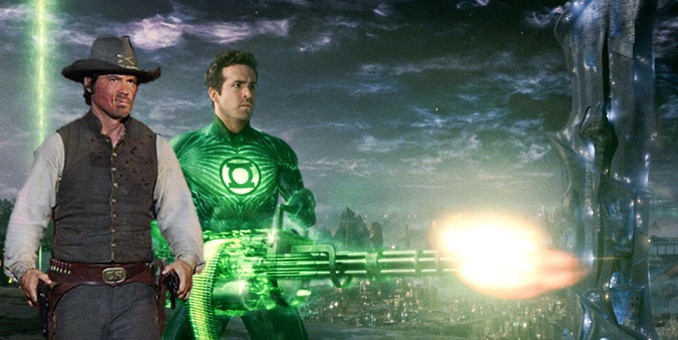
In the 70s and 80s, DC Comics ruled the comic book film industry. Starting with the Richard Donner Superman films and continuing with the Tim Burton Batman films, DC ruled the box office while Marvel films struggled to make any headway into cinemas.
This all changed in the 2000s when, at first, properties Marvel licensed to other studios such as Spider-Man to Sony and X-Men tot Fox made boffo box office bucks. Then the comic book company went out in a limb and started its own film company, Marvel Studios, to make movies out of the lesser-known characters they still had the rights to. That gambit was outrageously successful, and Marvel soon became the company that ruled the box office.
On the other hand, DC floundered. Those franchises above devolved into campy awfulness and their new additions were more likely to join the worst comic book films of all-time list than the Top 5 at the box office. Do you know anyone whose favorite film is Steel? Catwoman?
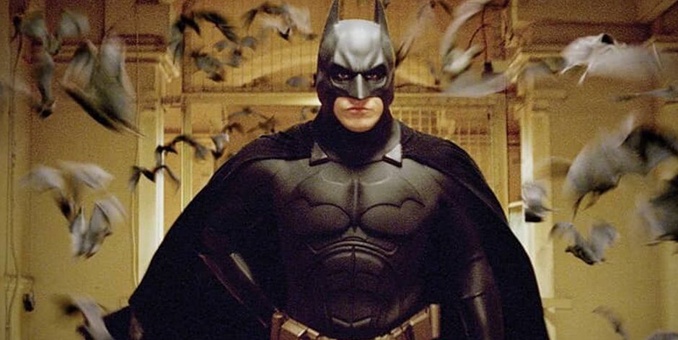
The one bright spot in Warner’s DC’s film universe was Christopher Nolan’s The Dark Knight Trilogy. Starting with 2005’s Batman Begins, the film franchise delivered one of the truest portrayals of Batman in any media. The grim and gritty version provided not only a comic accurate version of Batman, but also takes on the Joker, Ra’s Al Ghul and the Scarecrow that kept true to their comic book roots while going in a new direction.
Warners saw the respect and box office grosses Nolan’s films got and were inspired. However, the inspiration they took was both good and bad. Jeff Robinov, film group president at the time, thought the DC films should be “darker and edgier.” That was the bad take. The better one was involving Christopher Nolan in rebooting Superman, and in turn jump starting the DC Extended Universe.
Superman had also been floundering over the years. After the original franchise petered out, Superman went through an extended period of development hell. It came out of that period with 2006’s Superman Returns, a film that became an ipso facto sequel to the first two Superman films. That film didn’t make a mark at the box office so back to the drawing board they went.
Warners was a bit shell shocked after the failures of Jonah Hex and Green Lantern. The former was completely awful, the latter merely disappointing, but both bombed hard. They were one-and-done, no franchise to be had. Nolan’s Batman trilogy had come to an end with 2012’s The Dark Knight Rises, so Warners was in the market for a DC Comics franchise. However, David Goyer came to Nolan with a treatment for Superman, one that Nolan liked, and Man of Steel was born.
Man of Steel (2013)
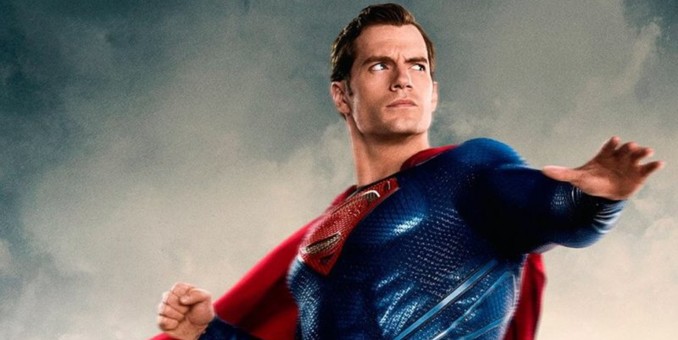
We should have known where the DCEU would end up. The first scene of first film of the franchise features a woman screaming in pain in a dingy grey room. That’s a bad omen if there ever was one.
Yes, the new Superman movie starts with the birth of Kal-El. That screaming woman is his mom, Lara. You can say this about Man of Steel, it showed us things no other Superman film ever showed before.
At the time, I liked Man of Steel quite a bit. But over the years seeing how the DCEU went downhill, I began to doubt how good the film actually was. However, rewatching again for this article, I am struck by how badly Warner Brothers squandered the potential this film gave them. Seeing it again, if feels like it is part of a different franchise altogether.
Superman (Henry Cavill) in this film is a young man search for his place on our planet. He wants to use his strange and wonderful abilities to help others. However, his Earth father Jonathan Kent (Kevin Costner) knows that if Clark shows his true nature in public, he’ll at best spend the rest of his life in a lab, at worst, killed. He believes this so much that he is willing to die to keep his adopted son’s secret. When General Zod (Michael Shannon) comes to Earth looking for the son of Jor-El (Russell Crowe), Clark must decide whether or not to reveal himself to the world or not. But if he doesn’t, Earth is doomed.
This is a more serious examination of Superman’s mythos, at times almost too serious. You get the feeling that Nolan, Goyer and director Zack Snyder had Warner’s executives standing over their shoulders yelling, “Grimmer! Grittier!”
I have had a lot of harsh words to say about Zack Snyder in the past. But he does a good job directing here. The annoying tricks and quirks that he calls a directorial style are restrained here. You barely see any slow motion! Or, at least less than there is in his other works!
It’s not a perfect film, a bit too somber at times, and Pa Kent telling Clark that maybe he should have let his classmates die hasn’t improved with time. But the film showed that the DCEU might have a good shot at giving Marvel a run for its money. It made over $668 million against an $258 million budget. Hope sprung high for the DCEU.
It didn’t last long.
Batman v. Superman: Dawn of Justice (2016)
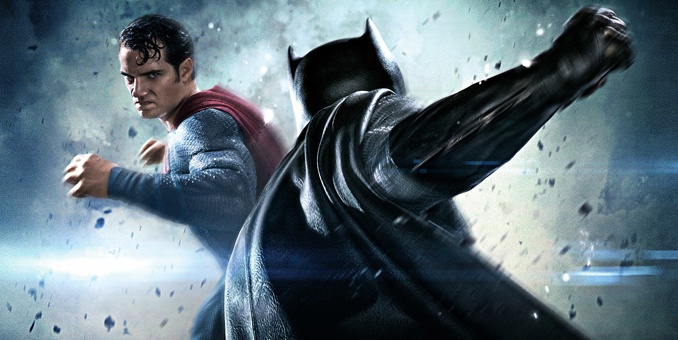
Oh, God, this is a horrible movie. Why is the DCEU being rebooted after only 10 years? Because of this film. It all comes back to this film.
I could write thousands of words about how bad this film is. Oh, wait. I have. Again and again and again and again. I simply can’t believe why anyone likes the film, let alone loves it. It boggles the mind. Maybe people really, really wanted to see Batman fight Superman. Warner Brothers certainly did. They were talking about a fight between the two going back to 2001, as a possible reboot before they chose to go with Superman Returns.
Like I said I could talk endlessly about everything that is wrong with this film but let me focus on the big one. The main one. The fatal flaw that was the film’s doomsday. I’m talking about the “Martha” moment and why it was so bad.
In case you haven’t seen the film, and Lord how I envy you if you haven’t, towards the end we have the big fight between Superman and Batman. Batman wins the fight because he has a whole bunch of kryptonite to help him. Batman has his heel on Superman’s neck, about to plunge a kryptonite spear into Superman’s chest. Just before the plunge, Superman begs Batman to don’t let them kill Martha. A brief back and forth and a timely entrance by Lois Lane tells Batman that Martha is Superman’s mother. A brief flashback to Batman’s own mother, also conveniently named Martha, and the killing is off! They are all friends! Huzzah! Huzzah!
This is one of the most idiotic plot points if movie history. Let me tell you why. For the whole film, Batman has been planning to kill Superman. He has been resolute in this goal. He even says a line of dialogue saying that if there is even a 1% chance that Superman will turn evil, he must be done away with. Superman has done numerous good deeds around the world, proving how good he is, but this does nothing to make Batman any less kill crazy. Even before the battle begins, Superman tries to reason with Batman, but Batman wasn’t having any of it. He’s that hell-bent on killing Superman. Nothing is going to stop him.
That kind of rabid desire to kill someone isn’t going to change just because your victim’s mother shares the same name as yours. That fact doesn’t change any of the reasons why Batman wanted Superman dead. If Superman was a threat before, he’s still a threat, only a threat whose mother shares the same name as yours. But the writers needed Batman and Superman to go from adversaries to best buddies but didn’t want to do the work to do it in a way that made sense. Fans will come up with all kinds of reasons why the “Martha” moment works. None of them are supported by the film itself. It is lazy and clumsy screenwriting. And it absolutely destroys the movie. It lays all its faults bare and there are a lot of them.
Who to blame? Well, Chris Terrio and Zack Snyder wrote the damn thing, so it is their fault. It also explains why it was so much worse than Man of Steel, which was written by David Goyer and Christopher Nolan.
The film made $873.6 million against a $300 million budget. Industry pundits say the film made a net profit of $105 million. This caused a bit of concern in Warner Brothers, who expected a $1 billion payday out of the film. This is one of the things that killed the DCEU. They expected their films to be $1 billion grossers, so they dumped buckets of cash into them. When the film doesn’t meet that arbitrary plateau, they panic. A lot of studios would love to have a film earn $873 million dollars. For Warners, it was enough to send them into panic mode.
I did say I would give out some praise, didn’t I? Alright, Wonder Woman absolutely rocked. Yeah, yeah, that was the obvious choice. Alright, how about this: I like Ben Affleck as Bruce Wayne and thought this was one of the most fluid Batmans in screen history. The character moved like way he seems to move in the comics–brutal yet smooth.
Suicide Squad (2016)
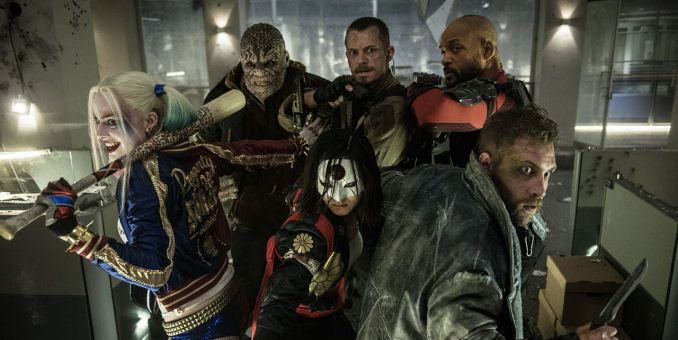
This film was even less well received critically than Batman v Superman but I liked it a lot more. Why was that? Is it because I have a soft spot in my heart for cheesy action movies? Is it because the cast looks like it actually wants to be there and is having fun? That there is actually humor in the script and it is not a turgid wading through the morass of “seriousness”? Yes to all these reasons and more.
It is one of the three DCEU films that I voluntarily watched more than once (the second one will be coming up in just a bit, and the third has a remarkably similar title). I’m not saying it is high art, but I am entertained every time I see it. In my review of the film, I gave credit to David Ayer. But it turns out that I should have given props, and it pains me to say this, to studio interference.
Ayer’s version was much darker and more militaristic, kind of like the DCEU films that came before. However, the lukewarm response to Batman v. Superman and the positive response to the more comedic Deadpool compelled Warner Brothers to step in and recut the movie, adding a whole lot more humor through reshoots. Comic book writer turned film executive Geoff Johns did rewrites for the new scenes, making this film the first film which he had a hand in fixing. His short tenure as Warners’ DCEU guru would eventually go down in flames, but I don’t think that the DCEU films he had a hand in making are some of the best of the franchise is just a coincidence.
This is also when “SnyderBros” started to rise in the comic book film discussion. To this day, they are still calling for an “Ayer Cut” of this film to be released, just like they did for the “Snyder Cut” of Justice League.
Like or or not, I’m pretty sure that there is one thing most sane people can agree on about this film–that Margot Robbie is absolutely fantastic as Harley Quinn. She joins the pantheon of Christopher Reeve as Superman and Hugh Jackman as Wolverine as an actor who so captures the spirit of the comic book character they are playing that it will be hard for anyone else to take over the role. There’s a reason why Warner Brothers had about 70 billion projects in the works for Robbie as Harley after this film. It’s because she is that good.
Wonder Woman (2017)
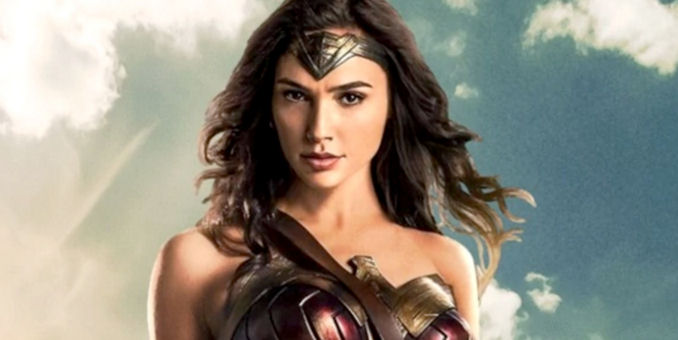
You got the feeling that a lot of people at Warners didn’t have faith in Wonder Woman. It received the lowest budget of any DCEU film up that point–$75 million less that Man of Steel, $100 million less than Batman v. Superman and even $25 million less than Suicide Squad, a concept the general public never heard of. Perhaps Warners believed the lie that comic book films with female leads don’t do well at the box office, and they were hedging their bets.
That is just an example of how dunderheaded Warners was. Wonder Woman is the most famous female superhero to come out of comics. You could have had a completely awful film starring her and still open big. Luckily, for Warners, Wonder Woman would turn out to be the best DCEU film.
Director Patty Jenkins and actress Gal Gadot captured the essence of the Wonder Woman characterization as a warrior fighting for peace. It is a dichotomy that even many comic book writers can’t wrap their heads around. Setting the film during World War I was a brave choice, but it helped create a narrative that further bolstered the idea that Diana would fight for peace by any means necessary.
I wrote about the film back in 2017, foolishly believing that it could mark a change of direction for the DCEU, taking it to a new level of quality.
I was wrong.
Justice League (2017)
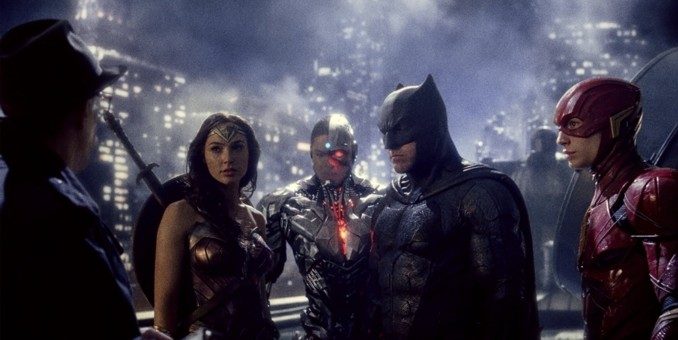
Justice League was a mess even before the first reel unspooled. It had one of the most chaotic post-production schedules in the history of film. And in that chaos, we saw a special mix of ego and incompetence on both sides. If you want to know when the DCEU officially died, it died here. There was no way the franchise would ever recover from this debacle.
Where should I begin? As I said, Warners was reeling after the failure of Batman v Superman. They were hell bound to correct the mistakes they made in that movie. During this time, they established DC Films under the eye of Geoff John and Jon Berg. One of the major criticisms they had of that film was that it was too long. Yes, they thought one of the reasons why BvS didn’t make a billion dollars was because it was too long and couldn’t get as many showings in theaters, so they put out an edict that the Justice League film had to be two hours. Okay, listen, as I get older and my bladder gets smaller, I am starting to appreciate shorter movies more and more. But if you are introducing three new superheroes and some of their supporting casts, bringing back a dead hero, and introducing a villain that will be part of a clan of villain that will return later in the franchise, you need a bit of room to do all that. Certainly, more than this film gave it.
One of the outside criticisms that Warners listened to was that BvS was too dark. Of course it was. Because Warners wanted it that way. Lest we forget, the whole DCEU was founded on the mistaken idea that superhero films needed to be dark and gritty like the Nolan Batman films. The creators of Man of Steel were tasked with grim and gritting it up from the get-go. And most of those creators were working on Justice League.
Zack Snyder was in the midst of making a “dark and operatic” epic. There was no room for levity and humor in Snyder’s vision. Warner’s decided to try and add some anyway by having Geoff Johns do spot rewrites to lighten the film. It didn’t work. The test screening was described as “unwatchable.” Zack Snyder was fired in January or February of 2017. Joss Whedon was hired to take over the film, rewriting and reshooting portions of it so that it would fall into Warners’ version of watchable.
Snyder’s exit from the film wasn’t announced until May of 2017. and the reason given was that he was stepping down to deal with effects of his daughter’s suicide. His daughter took her life in March of 2017, at least a month after Snyder’s supposed firing. This left a sour taste in my mouth. If it is true that Snyder was fired three months prior, the whole “taking time off because of his daughter’s death” was just a cover story to save face. Whose face is being saved? Warners’? Snyder’s? Both? Does it matter? A young woman’s death was used as an excuse so the truth about Snyder’s alleged firing didn’t come out. And it came out anyway, so it made it especially pointless.
Anyway, Whedon took over and reshot a lot of the movie. How much? At the time, no one knew. Some were saying he only redid 20% of the film, others said that it was closer to 90% of the film. Most evidence states that it was closer to the latter than the former, but we would get a better idea of how much changed later. But the reshoots added money to the budget, including one of the weirdest costs ever associated with a reshoot. By the time the reshoots took place, Henry Cavill had moved onto Mission Impossible: Fallout. His character in that film had a mustache, and Paramount forbid Cavill from shaving it off. This required Warners’ to digitally remove the mustache, making Cavill look like some kind of mutant squirrel in many of his close-ups.
All of this inflated the budget to $300 or $400 million, depending on what estimates you go with. This didn’t seem to bother Warner Brothers at the time. They had the man who directed The Avengers to a $1 billion gross helming the reboots! That means that the Justice League would make that much or more!
It didn’t. The film earned $661.3 million worldwide. Just to put that in context, that was more than each of the first two Iron Man films made at the box office, more than the first two Thor films made at the box office, and more than the first Captain America and Ant-Man films grossed too. It was the type of gross that the entire MCU was built on. But because Warners spent so much on the film, it ended up losing money.
There were a lot of other reasons why Justice League failed. But, regardless, the damage was done. While there would be one major high point ahead, the DCEU was all but over.
Aquaman (2018)
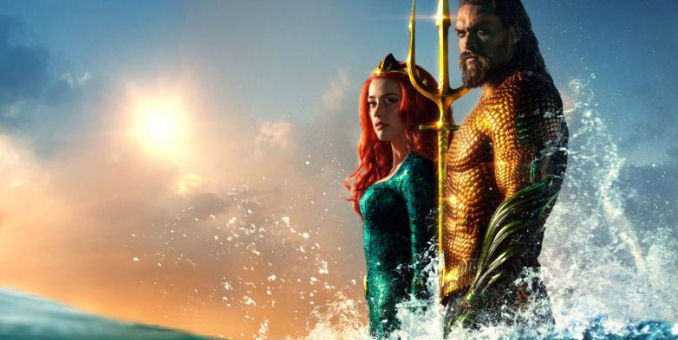
It the aftermath of Justice League‘s failure, Geoff Johns and Jon Berg were canned and replaced by Walter Hamada. All that needed to be done is flush out the projects the pair worked on before the healing can begin and the profits could start rolling in. The first one to be burned off was a film that Johns provided a story for, one featuring a character so lame that he became a punchline in an extended joke on the TV show, Entourage. Warners would absorb the loss and start planning for the future.
But because the DCEU was a cosmically cursed joke, Aquaman became the first and only DCEU film to break the coveted $1 billion plateau. Cue the sad trombone here.
Why did Aquaman succeed at getting to $1 billion where every other DCEU film failed? My gut instinct was that it was because it was fun. Jason Momoa was incredibly charismatic in the lead. It was lighter in tone. There is a difference between adding a few jokes to an otherwise glum film than having the whole film have a fun, adventurous feel to it.
Aquaman felt like a course correction, one that might have helped avoid the hiring of James Gunn and the reboot into the DCU. If only Warners weren’t so quick getting rid of the men that made it happen.
Shazam! (2019)
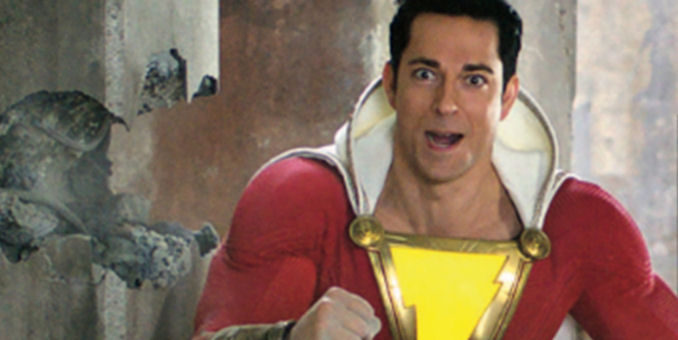
The DCEU followed up one bright spot with another, somewhat less bright spot the next year with Shazam! The film was another step away from the dark operatic direction Zack Snyder was pushing for. But the film also showed that Warners was going into another positive direction.
The film only grossed $367 million worldwide. That gross would be an abject failure–if the film didn’t have a budget of only $100 million dollars. Because Warners kept costs so low, they film was able to triple its budget even with that small of a gross. Pundits say that film made around $74 million in profit. You’d think this would be a lesson to all studios making comic book movies: keep budgets low so your profits are bigger. It was a lesson that went unlearned.
Shazam! would seem to be the last film to come out of the Johns/Berg regime, unless you count the long in development Black Adam. But it did set a guideline that the DCEU could follow if it wanted to grow and succeed. The only way the DCEU could fail now is if, I don’t know, if the world experienced a pandemic of historical proportions.
Birds of Prey (2020)
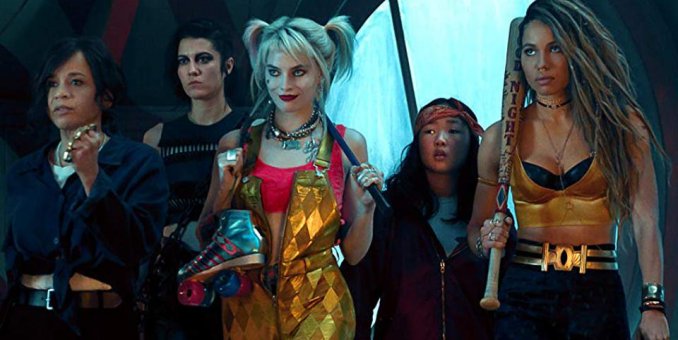
If you come upon any internet film influencer that says the reason why this film failed, making only $205 million worldwide, because it was a film starring women, directed by a woman and written by a woman, block them. They have a tenuous grasp on facts and are more interested in spreading an agenda than informing the public.
Do you want facts? Here are the facts. The film was released on February 5, 2020. At the time, the Coronavirus was raging across Asia and Europe. The disease was already in the United States, and we were a little over two weeks from the first U.S. death from the disease. The world was only weeks from shutting down.
If you don’t think all of this played a part in the poor financial reception of the film, you are crazy. I know I didn’t go see the film because I didn’t want to be in a crowded theater while COVID-19 was out and about. And I am sure I was not alone in this attitude.
But I did watch it when it hit home video and, at first, I was not that impressed. However, on repeat viewings, I found it to be a fun action picture with a lot of heart and a lot of humor. The film features some of the best fight choreography and stunts that I have seen in a film in recent memory. I also love the film’s take on Huntress, played to perfection by Mary Elizabeth Winstead. The film definitely deserved a bigger audience, and it deserved follow up after follow up.
Wonder Woman 1984 (2020)
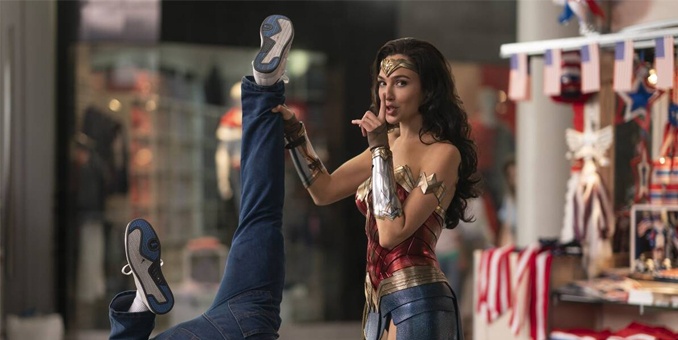
I wonder if this film wouldn’t be better received if Warners didn’t decide to release the film in theaters and on streaming on the same date. That policy, which Warners would eventually employ for all their 2021 releases, caused a lot of animosity among theater owners and theater lovers, who saw the move as a potential nail in the coffin to the theater industry.
But, to be honest, the film had an uphill fight no matter how good it was. The original was a classic (at least in the context of the comic book film). Any offering would pale in comparison with it.
At the time, I liked the film. I was especially impressed by Patty Jenkins directing and liked a lot of the qualities that many other critics found issue with, namely Pedro Pascal’s performance. But I don’t think I watched it in its entirety since the first time. And, looking back, I have to agree with other critics that the way they brought back Steve Trevor, essentially taking over another man’s life without his permission, was especially cringeworthy. There are tons of other ways Steve could have been brought back without that particular unpleasantness.
Zack Snyder’s Justice League (2021)
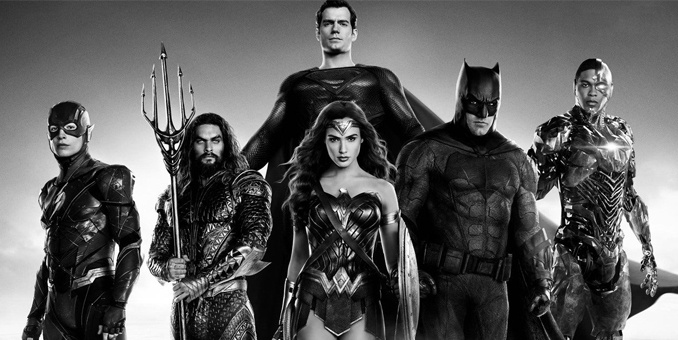
And then we come to this one.
Listen, I will be the first to say that Zack Snyder got a raw deal on Justice League. He was being made the scapegoat for delivering what Warners originally thought they wanted, what he was hired for. He was working on a sweeping, overall grim and operatic cinematic experience and was asked to switch it mid-stream to make a lighter, more humorous franchise. Then he got fired because he couldn’t deliver.
But that doesn’t change the fact that Zack Snyder wasn’t the right person to adapt the DC characters to the screen. Just his comments on Batman over the years is proof of that. He is an egotistical man-child who thinks that his adolescent approach to what makes these characters cool is actually an improvement on what has worked for them in their 80+ years of existence. He never got that he was only a caretaker for these characters, not a savior to fix all of them. That’s ego, pure and simple.
This would be insulting if Snyder was an even auteur on the highest order. He’s not. He is a superficial creator who thinking that shooting something in slow motion adds weight and gravitas to any scene, be it a superhero battle or a character ordering a cup of coffee. He is nowhere near the level of a Nolan, a Scorsese or a Spielberg, even though he might think he is.
The problem is, he has a loyal, almost manic fanbase that thinks he is the best director ever to draw air. It is a cult of personality that rivals the one that surrounds a certain former president. Could Zack Snyder shoot somebody on 5th Avenue and get away with it? Probably not, but I’m not in any hurry to find out.
This loyal fanbase started a “Release the Snyder Cut” movement almost immediately after his firing. I don’t know what the Snyderbros thought releasing Snyder’s cut would do. Maybe have a rapture like realization dawn on all of Snyder’s critics that he is a genius worthy of admiration, Warners would realize their mistake and let Snyder have unfettered access to their coffers to get the DCEU back on track, and maybe have the Pope make a special dispensation to allow Snyder to be made a saint while he was still alive.
They probably also believe the Snyder cut would be 100% different from the Justice League we got. It wasn’t. For an additional $70 million in reshoots (which was the same amount it cost to film Joker), it was essentially the same film as the theatrical version, with a few scenes added and a few scenes taken away.
The film did not set the world on fire. It didn’t not make non-Snyder Bros scream for his reinstatement as DCEU creative head, and it didn’t help the DCEU out much at all.
The director of the next film? Well, that’s another story…
The Suicide Squad (2021)
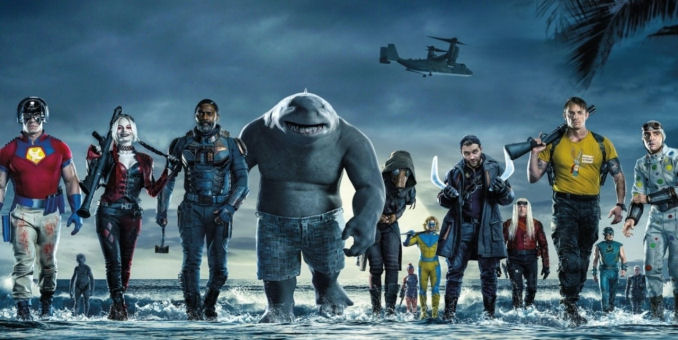
From about 2009 to 2011, James Gunn tried to be the Howard Stern of the Maxim-era. On his website and on Twitter, he would make comments that ranged from sexist to homophobic to pedophilic. He was trying to be racy, to push boundaries and be shocking.
It was shocking, especially when some of his most offensive comments were dredged up in 2018, leading Gunn to get fired (temporarily) from directing Guardians of the Galaxy 3. Of course, I found this firing to be a gigantic act of hypocrisy. Looking back, it might be one of the biggest mistakes that Marvel Studios ever made.
Because Warners wasted no time is scooping Gunn up and set him to direct the soft reboot/shadow sequel The Suicide Squad. The film was an improvement on the first film. one which stayed true to the source material but took it in a new direction. It managed to be grim and gritty and funny.
A connection was made with Warners, and Gunn and his producer Peter Safran would soon be placed in charge of rebooting the DC slate of films. Meanwhile, the MCU films started entering a tailspin, with the only bright spot being Guardians of the Galaxy 3, which Disney brought Gunn back to direct after the controversy died down.
I’m not saying that Gunn would have taken over the reins of the MCU if he wasn’t fired, but if he stayed, the MCU would have had at least one proven creator who knew how to work within the system and get results. Now he is going to get those results for the competition.
Black Adam (2022)
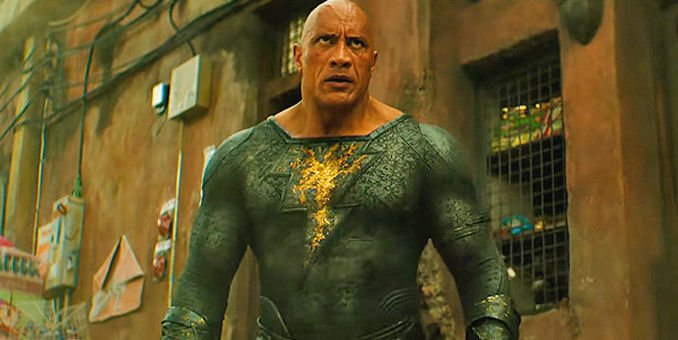
One of the things that the DCEU might have done better than the MCU is the whole shared universe thing. In the MCU, the heroes did team up for the big event films and the occasional cameo in another characters film, you’d also have terrorist blow up Hollywood Boulevard in Iron Man 3 and only Iron Man would be interested in it. Or a war would happen over the Potomac in Captain America: Winter Soldier without Shellhead or Thor poking their nose in it.
Warners did it a little better. Flash and Bruce Wayne appeared in Suicide Squad. Someone dressed as Superman appeared in Shazam! as a friend of Captain Marvel. It was a small touch, but it made the DCEU seem like a universe filled with heroes that mixed in a way that made sense.
Enter Dwayne Johnson to throw a spanner in those particular works. A man whose ego was far bigger than Warners attempts at building a shared universe. Yes, perhaps even a bigger ego than Zack Snyder.
First off was the inclusion of the Justice Society of America as an opponent to Johnson’s Black Adam. In the film, Amanda Waller, concerned about the Superman-like Black Adam, sends the JSA in to combat him. Now, let’s flashback to the first Suicide Squad. Warners might have wanted you to forget that film, but a lot of people saw it. And a main plot point of the film is that the team is expressly created to take on Superman-level threats. And yet, here we are, a Superman-level threat, and Waller calls in the JSA. If she has the JSA on her beck and call, why did she need to create the Suicide Squad?
It appears that Johnson wanted the JSA because he wanted to create a diverse superhero team that the Black Adam character might want to interact with in future sequels like the character did in the comic books. But in his desire to set up future sequels for himself, he totally ruined a part the DCEU continuity.
But, wait! It gets worse! In a mid-credits scene, Waller sends Superman (Henry Cavill) to Khandaq after Black Adam! This raises the question as to why she needs either the Suicide Squad or the JSA when she has Supes on speed dial.
Here’s the deal, though. Warners was moving on from Cavill. Johnson had to move heaven and earth to get Cavill’s Superman in for that cameo. Obviously, Johnson was hoping to set up a future fight between Black Adam and Superman. The only thing Johnson worked harder on than getting Superman into the film was keeping Captain Marvel out.
A sidebar into comic book history here. Savvy non-comic reading DCEU films fans might have already picked up on this due to their similarities, but Black Adam is a Captain Marvel/Shazam! villain. He only made a few appearances in the early years of the character, but he became a major nemesis over the last 40 years or so. He has a similar origin, the same power set and even a very similar costume. And since Captain Marvel is just as powerful as Superman, a Black Adam/Captain Marvel fight would be just as much of a slobber knocker.
But Johnson didn’t want Zachary Levi’s character in his film. He even nixed a cameo and the post-credits scene where Captain Marvel is recruited into the JSA (It was instead put on Shazam! Fury of the Gods). He wanted Black Adam to fight Superman, because, in his eyes, Captain Marvel was lame. Superman is much cooler.
If you are building a shared cinematic universe with a shared continuity, you can’t just change it all on the whim of a star, no matter how big he is. Doing so, make fans of the shared universe not want to follow along.
Not helping matters is that Johnson wanted his Black Adam to be the grim and gritty anti-hero that the DCEU had spent 6 years trying to move away from. Black Adam kills indiscriminately, is constantly sullen and moody, and doesn’t want to be a hero. It was a flashback to a time in the DCEU where that kind of characterization was tried and didn’t work. And it didn’t really work here.
Johnson ignored the franchise’s history, scoffed at its continuity, and left behind what made sense in order to appear cool. He didn’t care, He was building a kick-ass future for himself as part of the DCEU. The irony is, the future was already being set all the while he was doing this, and the future probably wouldn’t feature him at all.
Shazam! Fury of the Gods (2023)
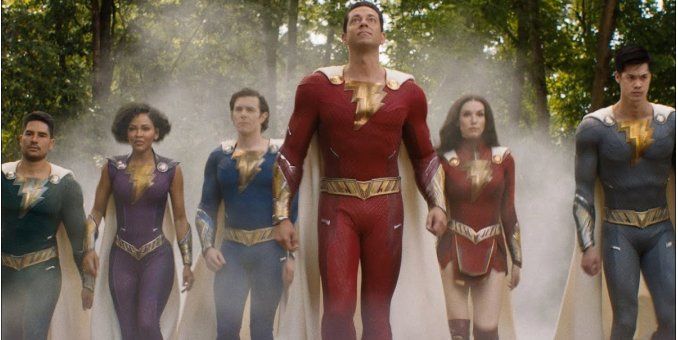
In October of 2022, just days after Black Adam was released. Warners came out with the announcement that James Gunn and Peter Safran were taking over the reins of the DC films. We would eventually find out that this would be a reboot.
The timing of the announcement was completely idiotic. Coming as it did, it cut the legs out from under Black Adam and made the remaining four DCEU films lame duck films. While Gunn has confused the situation by saying some actors and plotlines would carry over, it looks like we are at the start of a new era, with the old era dying a slow painful death.
The first dead man walking was this film. It was a bomb at the box office and a disappointment with the critics. I don’t think the film was as bad as the critics made it out to be. It wasn’t as good as the first one, but I enjoyed it when I first watched it, although I forgot it soon after. The only sad part about the film is the post-credits scene where they once again tease a Mr. Mind/Sivana team up that should have happened in this film but now likely will never happen.
The Flash (2023)
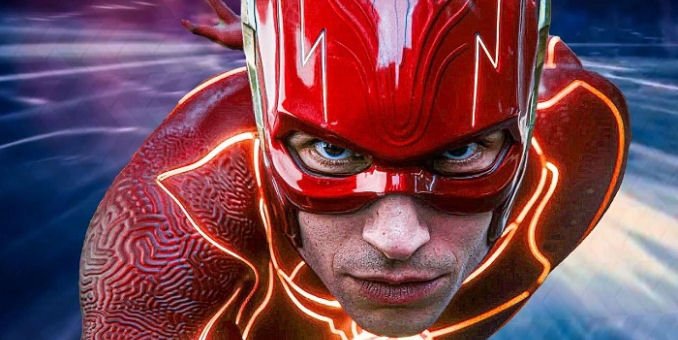
Just putting the out there just so I get this straight. Warners fired Zack Snyder because they didn’t like his Justice League, hired Joss Whedon to replace him, only to bring back Snyder to reshoot the film so it matches his vision. Then, later, it shelves a Batgirl film and took a tax write-off on it because it was unwatchable, yet it allowed this film to come out unscathed? This one doesn’t get fixed or filed away? Make it make sense.
I stand by my assessment that Ezra Miller took away most of my enjoyment of the film. They are an alleged sociopath, accused of everything from grooming underage girls to assault. I just couldn’t root for Barry Allen because I couldn’t forget what the actor who portrayed him was accused of. I think that Warners should have reshot the film, replacing him or never showed it at all. I imagine that the reason why that didn’t happen was because with a budget of $200 million already, Warners wasn’t willing to sink more money in or take a loss that big.
Other than that, James Gunn had said that this film was going to reset everything and set the way for his DCU. I don’t see it. Unless it is the fact that the film establishes that every other media appearance of DC heroes is part of the multiverse, there is no big change that I saw. And even that piece of information was already established in the CW’s Arrowverse. Maybe Barry’s shenanigans in time travel were meant to set up Gunn’s DCU, but both Jason Momoa and Ezra Miller are in the film after history was changed, and they ain’t going to be in the DCU. Confusing.
Blue Beetle (2023)
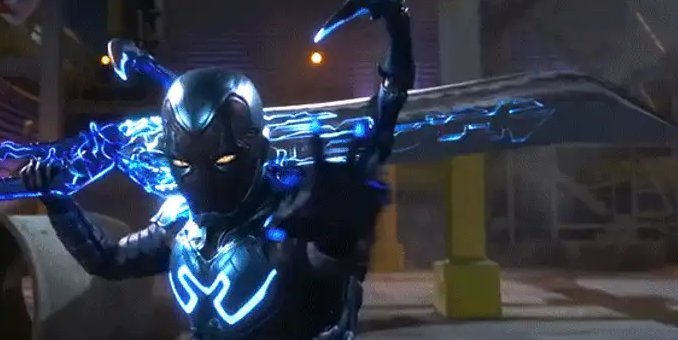
The worst part about this lame duck era of the DCEU is that we got a really good film during it. Blue Beetle was a great film that a great cast, a good focus on family, was exciting and emotionally powerful. It also bombed at the box office but didn’t deserve to.
In the confusing time after the announcement of the DCU, Gunn and Safran both said that this film’s star, Xolo Maridueña, will be returning in the new continuity, even if this film isn’t part of it. I think that’s a good thing, because he was great in the role. But part of why the film worked was his relationship with his family. I hope they make the jump too.
Aquaman and the Lost Kingdom (2023)
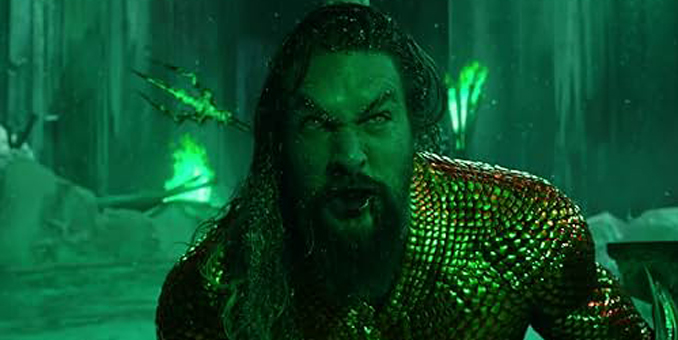
The DCEU ends not with a bang, not with a whimper, but with more of a “meh.”
Depending on which rubric you used, this film either just broke even (as it made double its budget) or was a failure (because it was way short of making three times its money back). Regardless, it was lambasted by the critics.
Once again, I have to disagree with the critics. It wasn’t as bad as they said it was, but it was much too bloated. It would have worked better if it focused exclusively on Black Manta trying to get his revenge on Aquaman without the climate change plot added in. But you get the feeling the producers didn’t think that story was big enough to support the sequel, so they threw in plot line where the world is in jeopardy through an environmental crisis to make the stakes bigger.
Rumor has it that while no DCEU actor will carry over to the same role, Jason Momoa might be in the new continuity as intergalactic bounty hunter Lobo. I have a love/hate relationship with the Lobo character, but if Momoa plays him, the needle might move father over to the “love” side. Momoa made the role of Aquaman his own, but Lobo is a part that is almost custom made for Momoa to play. I hope this happens.
Conclusion
And with that we have come to the end of the DCEU as we knew it. Looking back on the above films, we can see what the weapons that killed the DCEU were.
- General overall stupidity by Warner Brothers: Warners is a great movie studio. They have made widely acknowledged classic films of cinema. But dating back to the Richard Donner Superman, they have shown a blind spot towards what makes their DC Comics properties tick. Their idiotic treatment of the DCEU started with the mandate that all the films be grim and gritty, but it continued along with the hiring/firing of Zack Snyder, sacking Johns and Berg as scapegoat for the Justice League debacle when they had a hand in making the best films of the DCEU, letting Dwayne Johnson run roughshod on Black Adam and countless other stupid things. The hiring of James Gunn and Peter Safran looks smart on paper, but he is still working for Warner Brothers. And they have a proven record of ruining DC movies.
- Zack Snyder: Snyder might have more knowledge of what made the DC characters tick than the Warners brass, but his approach to them was that he could do them better. He was wrong. I have already written a lot about him in this piece, but there is some much more I could say if I had time. He definitely got the DCEU off on the wrong foot, and it never quite got on the right one afterwards.
- The chase for $1 billion: This could have been folded into number one, but it is important enough to get recognized on its own. A lot of the DCEU films made enough money to be successful if their budgets were just lower. But Warners believed that all their films were guaranteed to make over a billion dollars. They were so confident that they threw good money after bad at their DCEU films, thinking that they definitely would get it back. When they didn’t, they made less of a profit (or none at all). We might still have a DCEU if Warners was more realistic about their potential grosses and was more realistic their budgets.
- The Pandemic: The Pandemic hit the film industry hard, but it was particularly rough on the DCEU. The film franchise seemed to be gaining momentum before the plague hit but having the world close up pretty much brought that to a screeching halt. Warners didn’t help matters by going day and date streaming with its films during the lockdown and after. Nothing will alienate the theaters that show your movies than forcing them to lose money by allowing fans to watch the same films from the comfort of their own homes, especially when said theaters are struggling to come back from the same pandemic you are.
- Fatigue: I firmly believe that comic book movie fatigue is not a big deal as people say it was. But I believe that the DCEU suffered from a different kind of fatigue. There has been a law of diminishing returns throughout the progression of the DCEU. Fans got tired of seeing disappointing film after disappointing film. They were looking for a jumping off point. Lucky for them, Warners gave them one.
- The Gunn Announcement: Yes, announcing that a new creative team will be (possibly) rebooting your entire shared universe is a great way to kill the one you already had. But announcing it when they did essentially told fans that they could stop watching the films. The last batch of films never had a chance, and that was a shame.




